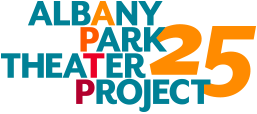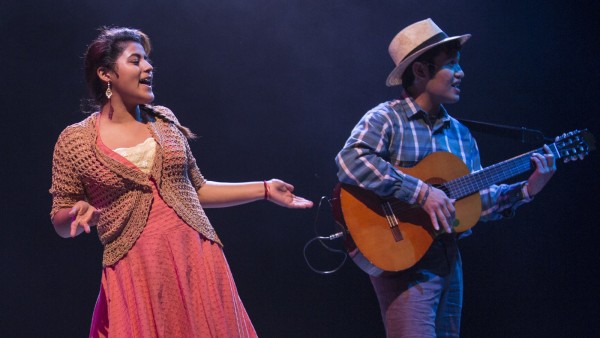If you’re going to produce a theatrical production based on interviews with Chicagoans talking about food, Albany Park is as good a place to start as any. Not only is it one of the most diverse neighborhoods in the city—and in the country—it’s also home to the Albany Park Theater Project, an ensemble of teenagers that has a history of producing shows that are honest, funny, and inspirational in the best possible way: after you see them, you want to do something.
Recent APTP shows have dealt with immigration, the foreclosure crisis, and child abuse. The current production, Feast, opening tonight at the Goodman, is a revival and updating of a show from 2010, and is more lighthearted, but it’s no less serious.
“We talked about ways food shapes all our lives,” says David Feiner, the adult director. “Nutrition and nourishment, the way families connect. A number of young people in our theater company have family members who work in the food industry, so we talked about the conditions in the food industry. And of course talking about food with teenagers leads to discussion of body image and the relationship between food and how we look, food and gender roles, hunger and issues of food security. There’s an awareness of the degree a small handful of companies control what we eat and how much it costs.”
Food politics, though, are not the focus of Feast. Instead they form a background for the stories, which are far more interesting. The students went out into the neighborhood to interview street vendors, shopkeepers, and members of their own families. Rossana Rodriguez Sanchez, the project’s resident director, introduced the teenagers to a group of women in Little Village who have formed a mole-making collective. “We’ve gone to interview them several times,” she says. “The girls who are Mexican have made a connection between the women and their mothers and their own history. It’s been a really beautiful experience, a transformation that happens.”
Once the students finish the interviewing, they bring the transcripts—which are sometimes hundreds of pages long—back to the theater for what Feiner calls a “theater lab”: “We explore how to transform the material into compelling material onstage.”
In one interview, one of the ensemble members’ fathers told a story about a cow he knew as a boy in the Philippines. “He said he told the cow jokes,” Feiner says, “and the cow laughed. He said, ‘The cow and I prayed together’ without a wink. I thought, there’s something wondrous here.” The young actors worked for several weeks on body percussion to figure out a way to create a cow through sounds. “We wanted the audience to be transformed into the same magical realism the boy lived in. What you’re watching on the stage is real, and it’s a metaphor for something else. The body percussion requires such focus and precision. It’s pure theater.”
 Menu
Menu
